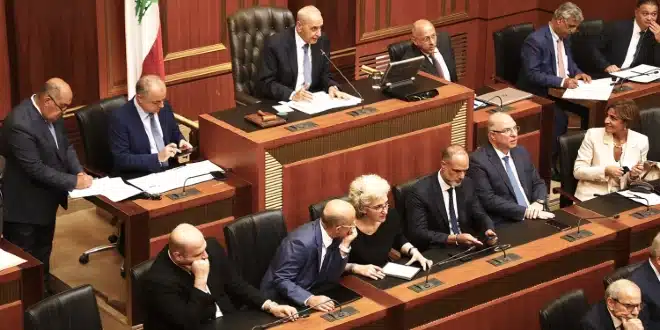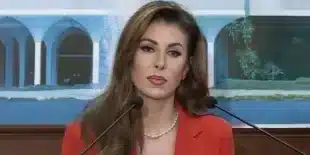In a pivotal session held on Wednesday, Lebanon’s Parliament voted to uphold the current government, defeating a motion of no confidence introduced by Jebran Bassil, leader of the Free Patriotic Movement (FPM). The vote took place during a plenary session that focused heavily on security issues, particularly Hezbollah’s armament and ongoing Israeli military activity.
Vote Breakdown Reflects Political Divisions
The vote saw 69 Members of Parliament express their support for the government, effectively securing its continuity. In contrast, nine FPM lawmakers voted against the administration, while four MPs chose to abstain. The outcome underscores the existing political fragmentation in Lebanon, especially over matters of national defense and regional policy.
Prime Minister Pledges to Uphold State Sovereignty
Addressing lawmakers during the session, Prime Minister Nawaf Salam reaffirmed his government’s commitment to asserting Lebanese sovereignty both north and south of the Litani River. He also emphasized the importance of continued diplomatic and legal efforts to compel Israel to withdraw from Lebanese territory and to halt what he described as ongoing violations.
“The government will remain steadfast in its mission to restore full state authority across all regions,” Salam said, referencing areas where the Lebanese state lacks control or faces external threats. His comments come amid heightened regional tensions and renewed Israeli military operations along the southern border.
Security and Arms Dominate Parliamentary Discourse
The session was dominated by contentious debate over Hezbollah’s military presence and Israeli incursions into Lebanese airspace and territory. A number of MPs voiced their concern over the continued operation of Hezbollah as an armed group outside the control of the national military, calling for its disarmament as a step toward strengthening state institutions.
In response, Hezbollah MP Ibrahim al-Moussawi defended the organization’s continued military role, arguing that the Lebanese Army lacks the necessary weaponry to defend the country effectively on its own. “We all know that the army is not permitted to possess the defensive capabilities required to protect the country against the enemy,” he stated.
Al-Moussawi’s remarks reflect a long-standing political and ideological divide in Lebanon, where Hezbollah’s armed wing is viewed by its supporters as a necessary deterrent against Israeli aggression, while critics argue it undermines the authority and neutrality of the Lebanese state.
What This Means for Lebanon Going Forward
While the government has survived the immediate challenge to its legitimacy, the debate surrounding Hezbollah’s arms and the nation’s defense strategy remains unresolved. These discussions are expected to continue shaping Lebanese politics in the coming months, particularly as pressure mounts domestically and internationally for reforms that could rein in non-state armed groups.
The vote of confidence may have secured short-term stability, but the deep-rooted questions about state sovereignty, military power, and Lebanon’s geopolitical orientation are far from settled.


